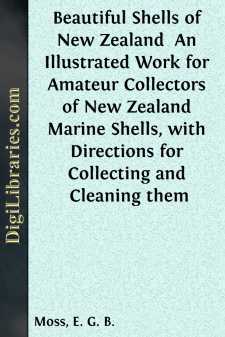Fiction
- Action & Adventure 180
- Biographical 15
- Christian 59
- Classics
- Coming of Age 5
- Contemporary Women 3
- Erotica 8
- Espionage/Intrigue 12
- Fairy Tales, Folklore & Mythology 236
- Family Life 169
- Fantasy 117
- Gay 1
- General 596
- Ghost 32
- Historical 808
- Horror 43
- Humorous 159
- Jewish 25
- Legal 4
- Medical 22
- Mystery & Detective 315
- Political 49
- Psychological 41
- Religious 64
- Romance 158
- Sagas 11
- Science Fiction 730
- Sea Stories 113
- Short Stories (single author) 537
- Sports 10
- Suspense 1
- Technological 8
- Thrillers 2
- Urban Life 31
- Visionary & Metaphysical 1
- War & Military 173
- Westerns 199
Classics Books
Sort by:
by:
John Lord
CARDINAL DE RICHELIEU. A. D. 1585-1642. ABSOLUTISM. Cardinal de Richelieu is an illustration of what can be done for the prosperity and elevation of a country by a man whom we personally abhor, and whose character is stained by glaring defects and vices. If there was a statesman in French history who was pre-eminently unscrupulous, selfish, tyrannical, and cruel, that statesman was the able and wily...
more...
by:
John Lord
CHATEAUBRIAND. 1768-1848. THE RESTORATION AND FALL OF THE BOURBONS. In this lecture I wish to treat of the restoration of the Bourbons, and of the counter-revolution in France. On the fall of Napoleon, the Prussian king and the Austrian emperor, under the predominating influence of Metternich, in restoring the Bourbons were averse to constitutional checks. They wanted nothing less than absolute...
more...
by:
John Lord
LOUIS NAPOLEON. 1808-1873. THE SECOND EMPIRE. Prince Louis Napoleon, or, as he afterward became, Emperor Napoleon III., is too important a personage to be omitted in the sketch of European history during the nineteenth century. It is not yet time to form a true estimate of his character and deeds, since no impartial biographies of him have yet appeared, and since he died less than thirty years ago. The...
more...
by:
John Lord
THE AMERICAN CONSTITUTION. There is one man in the political history of the United States whom Daniel Webster regarded as his intellectual superior. And this man was Alexander Hamilton; not so great a lawyer or orator as Webster, not so broad and experienced a statesman, but a more original genius, who gave shape to existing political institutions. And he rendered transcendent services at a great...
more...
by:
John Lord
1782-1850. THE SLAVERY QUESTION. The extraordinary abilities of John C. Calhoun, the great influence he exerted as the representative of Southern interests in the National Legislature, and especially his connection with the Slavery Question, make it necessary to include him among the statesmen who, for evil or good, have powerfully affected the destinies of the United States. He is a great historical...
more...
by:
John Lord
1795-1881. CRITICISM AND BIOGRAPHY. The now famous biography of Thomas Carlyle, by Mr. Froude, shed a new light on the eccentric Scotch essayist, and in some respects changed the impressions produced by his own "Reminiscences" and the Letters of his wife. It is with the aid of those two brilliant and interesting volumes on Carlyle's "Earlier Life" and "Life in London,"...
more...
by:
Jane Fielding
CHAPTER I. HOW I TUMBLED DOWNHILL. It is not easy for one to believe that he ever was a cub. Of course, I know that I was, and as it was only nine years ago I ought to remember it fairly clearly. It is not so much a mere matter of size, although it is doubtful if any young bear realizes how small he is. My father and mother seemed enormous to me, but, on the other hand, my sister was smaller than I,...
more...
by:
Ouida
OF EARLSCOURT'S FIANCEE."To compass her with sweet observances,To dress her beautifully and keep her true." That, according to Mr. Tennyson's lately-published opinion, is the devoir of that deeply-to-be-pitied individual, l'homme marié. Possibly in the times of which the Idyls treat, Launcelot and Gunevere might have been the sole, exceptional mauvais sujets in the land, and...
more...
by:
Francis Beaumont
ACTUS PRIMUS. SCENA PRIMA. Enter 2 Ushers, and Grooms with perfumes. 1 Usher. Round, round, perfume it round, quick, look ye Diligently the state be right, are these the richest Cushions? Fie, fie, who waits i'th' wardrobe? 2 Ush. But pray tell me, do you think for certain These Embassadours shall have this morning audience? 1 Ush. They shall have it: Lord that you live at Court And...
more...
by:
E. G. B. Moss
CHAPTER I. SHELLS AND THEIR INMATES. Before the study of shellfish, or molluscs, was conducted on the scientific principles of the present day, shells were classified as univalves, bivalves, and multivalves. The univalves were shells in one piece, such as the whelk; the bivalves those in two pieces, such as the mussel or oyster; and the multivalves those in more than two pieces, such as barnacles or...
more...











